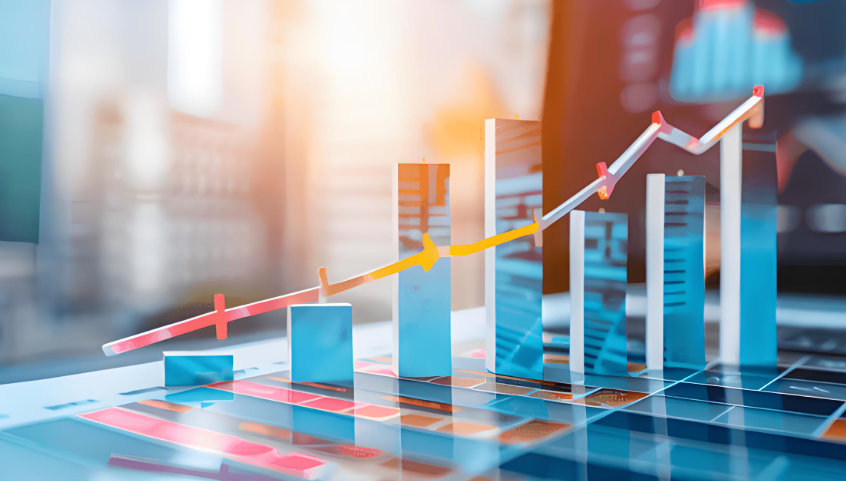In the early hours of today, OpenAI's co-founder and CEO Sam Altman published a thought-provoking article on his personal blog titled "Three Observations", which has sparked discussions across various platforms regarding the future of artificial intelligence (AI) and its implications for society. The article is both a reflection on current advancements in AI technology and a forecast of its economic impact in the coming years.
Altman emphasizes three key observations that may reshape our understanding of AI’s potential. First, he posits that the intelligence level of AI models essentially correlates to the logarithm of the resources used in their training and operation. These resources include computational power, data, and reasoning capabilities. This correlation implies a continuous, predictable return on investment as long as the funds allocated to AI development increase.
Second, Altman notes a staggering decrease in costs associated with using specific levels of AI technology, suggesting that every year, these costs are approximately halved. He draws attention to a specific example involving the cost of GPT-4 tokens, which saw prices drop significantly, demonstrating the exponential nature of cost reduction in AI deployment. This is reminiscent of Moore's Law, which famously indicated that the performance of computing devices doubles roughly every 18 months. Altman asserts that the pace at which AI costs decline surpasses even this remarkable trend.
The third observation centers on the idea that the societal and economic value generated by linear improvements in intelligence may lead to exponential growth in productivity and innovation. This observation points to the potential for AI-driven progress that could have vast, transformative effects on many sectors of the economy.

OpenAI is investing heavily in the development of AI agents, which are envisioned to be integrated into various roles within the workplace. Altman describes these agents as virtual colleagues capable of handling tasks that would typically require a few years of human experience, albeit with limitations in creativity and oversight needs. As these AI agents proliferate across different fields, they may significantly augment human capabilities and productivity.
To contextualize the long-term implications of AGI (Artificial General Intelligence), Altman highlights humanity’s relentless drive for innovation, exemplified by technological achievements over the centuries. From the invention of electricity to the development of the internet, each generation builds upon the discoveries of its predecessors. AGI represents the next leap in this evolutionary process, with the potential to radically alter societal dynamics by enhancing creativity and facilitating unprecedented economic growth.
Altman expresses an optimistic vision for the future, suggesting that within a decade, the average capabilities of individuals could surpass those of today’s most influential figures. He paints a vivid picture of a world where people have the ability to cure diseases, cultivate stronger family bonds, and unleash their creativity like never before.
He further cautions that while the transformation driven by AI will be monumental, it won’t occur overnight. The immediate aftermath of AI deployment will likely resemble our current lives, where many familiar human experiences persist. However, the foundational shifts are underway, and society will evolve in ways that may be difficult to foresee today.
In terms of economic and social impacts, Altman warns that massive structural changes will bring forth new challenges and opportunities. The importance of autonomy, intention, and resilience in navigating a rapidly changing environment will become paramount. Individuals equipped with the right skills will be better positioned to adapt and thrive in this emergent landscape.
Moreover, Altman forecasts that the benefits of AGI will not be evenly distributed, with some sectors transforming much faster than others. This raises critical questions about wealth distribution and how society will manage the shifts in power dynamics between labor and capital. He mentions the possibility of novel interventions, such as allocating a "computational budget" to individuals, promoting equitable access to AI resources.
This notion highlights the current conditions where many talented individuals lack the means to fully express their capabilities. Transforming this aspect of the economic landscape could unearth tremendous value that benefits humanity as a whole, driving innovation and fostering a more equitable society.
Altman concludes with a call to action for policymakers and society at large to consider how to integrate AGI responsibly. He advocates for empowering individuals with greater control over technology to avoid pitfalls associated with authoritarian misuse. As AI becomes integrated into every facet of life, it is crucial that its benefits are widespread, aiming not only to improve average indicators of health and prosperity but also to address issues of equality and accessibility.
In this rapidly evolving discourse around AI, Altman's insights compel us to reflect on the potential consequences and ethical dimensions tied to technological advancement. As we step into a future increasingly shaped by AI, fostering a culture of innovation, maintaining vigilance over socio-economic disparities, and prioritizing ethical use will be vital. The thriving of both technology and humanity will hinge on our collective choices in harnessing the power of artificial intelligence.